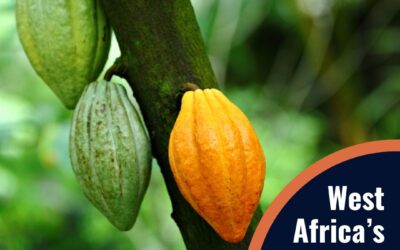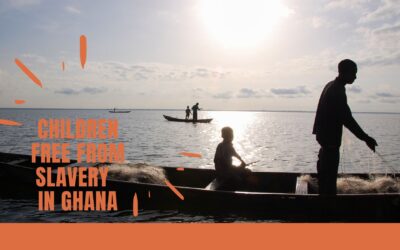Boys as young as 12 are working with dangerous chemicals to extract gold dust from ore. Girls as young as 10 are prostituted in mining camps and are pushed into relationships with older men.
These deeply moving stories of children losing their childhoods and freedom to violence, hard labor, prostitution, and sexual abuse are some of the key findings of recent FTS research on child slavery in Ghana’s gold mining regions.
The investigation was part of our 18-month Child Rights in Mining Project. Free the Slaves and our on-the-ground partners in Ghana, Participatory Development Associates and Social Support Foundation, conducted qualitative research into modern forms of slavery, including child sex trafficking and the related and overlapping problem of hazardous child labor.
Researchers aimed to document the dynamics of exploitation and abuse of children in Obuasi, Ghana, where informal small-scale and artisanal gold mining occurs. Ghanaian human rights groups have been concerned for many years about the enslavement and exploitation of children linked with so-called “galamsey” mining sites, which are sites where unlicensed informal mining takes place, but very little research has been carried out in this area.
Read the research report summary here.
Key Recommendations:
- Build the capacity of state institutions responsible for child protection.
- Provide adequate resources to state institutions, such as the Department of Social Welfare.
- Enable community groups within the mining areas to develop community action plans through which local residents identify steps that can be taken to address sexual abuse and exploitation of children.
- Form active and well-trained child protection groups in each community to help identify local risks to children and act to protect them.
- Clarify procedures for reporting cases of sexual abuse and exploitation.
- Ensure the effective enforcement of criminal laws against child slavery, sex trafficking and sexual abuse, worst forms of child labor and other forms of child exploitation.
- Disseminate regular messages to local residents about children’s rights, child slavery and sex trafficking, hazardous child labor, child labor slavery and sexual violence.
These recommendations are intended to guide local facilitators as they assist community groups in demanding adequate child protection responses from government. They provide a reference point for community advocacy with local officials to demand that they meet their obligations to curtail sex trafficking, child labor slavery, hazardous child labor and other forms of child exploitation in Ghana’s informal mining communities.
As a result of the research, FTS and its partners produced a series of three booklets to educate community members. The stories in these booklets focus on three themes that emerged from the research: the importance of good parenting, the dangers of child labor, and the existence and root causes of sexual violence against children.
The booklets have been used with more than 350 participants in 25 learning groups led by trained community facilitators. The groups met weekly or bi-weekly to discuss the illustrated stories and how to take up ways to reduce sexual violence and child labor and protect children.

One of the illustrated booklets tells the story of a boy who is forced to drop out of school and work in a mine.
An evaluation of the pilot project was recently concluded. It showed profound results in successfully shifting community attitudes about the rights and protection of children, resulting in the removal of children from situations of slavery and hazardous labor. A detailed report of the pilot project will be released soon.
Read more about FTS work in Ghana here.



